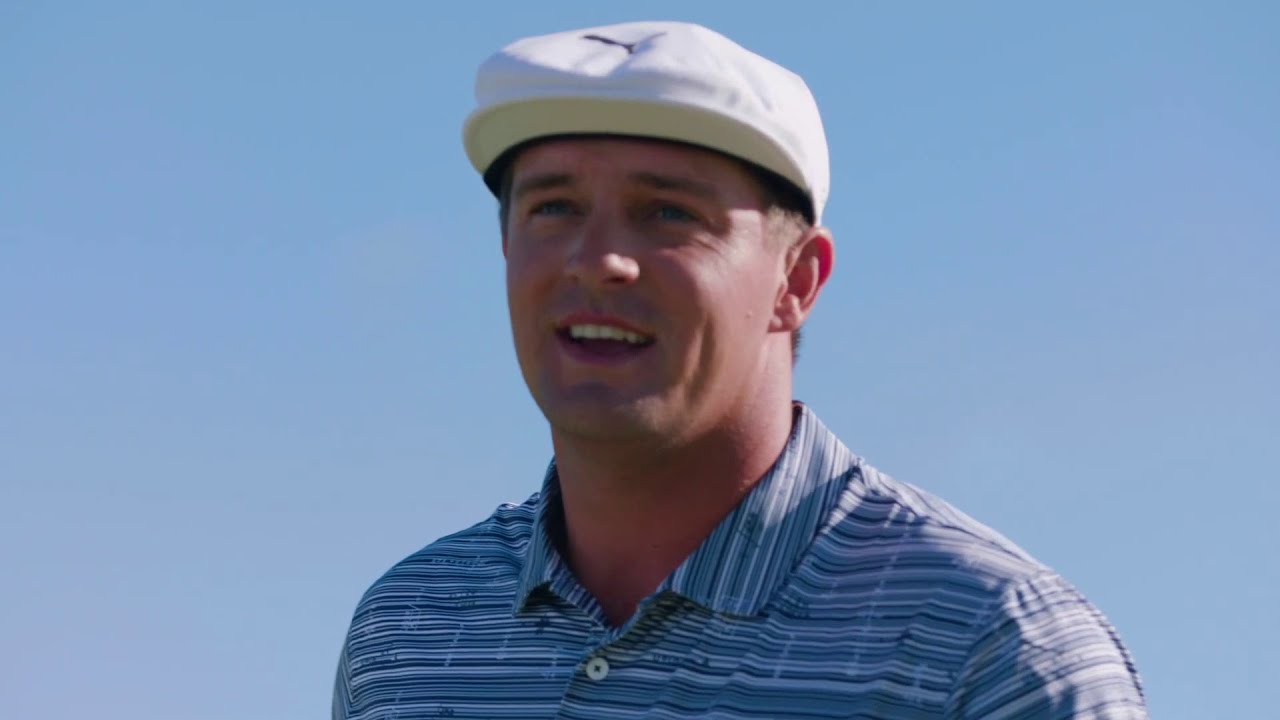Via SI:
“Golf’s brainiest player would like you to know he is no genius. Bryson DeChambeau took a four-hour IQ test not long ago, for a company he works with called Neuropeak, and he scored 121—above average, certainly, but not Mensa material. Sure, the man they call the Scientist talks excitedly about air density and wind vectors, spreads the gospel of single-length irons, and once said he would decide whether to pull the pin on putts based on the coefficient restitution of the flagstick. But that’s passion, not genius. Despite how he acts sometimes, DeChambeau does not always think he is the smartest person in the room.
His IQ is a nugget of information, and DeChambeau shares it because he is obsessed with information. Pursuing it, understanding it and using it is the core of his success. Tiger Woods is famously trying to surpass Jack Nicklaus’s 18 major championships, Rory McIlroy is focused on winning the Masters to complete a career Grand Slam and Brooks Koepka is aiming to win at least 10 majors. The 27-year-old DeChambeau has every reason to set high goals, too. He is just the third player, after Nicklaus and Woods, to win the U.S. Amateur, the NCAA championship and the U.S. Open. He has been the PGA Tour’s best player since the June restart, and he crushed the Open field in September at Winged Foot by six strokes.DeChambeau, who tied for 29th at Augusta National last year, will be the favorite when the 2020 Masters tees off on Nov. 12. But the world’s No. 5 player says he is not gunning for a certain total of titles. To DeChambeau, golf is not a game to be played but a puzzle to be solved.
Golf’s most famous numbers-cruncher does not write down his score after every hole. He waits until he has finished the front or back nine, then enters all his scores—and all of his playing partners’, too. This is odd for many reasons, but one is that by DeChambeau’s own admission (confirmed by testing), his short-term memory is not great. “As a kid, when I would study for tests, it always took me double the amount of time for somebody else to study,” he says. “I couldn’t remember stuff. I would read it, read it, read it and it just would not happen.” He struggles to recall numbers, but he intensely soaks in experiences. He can wait to write down 27 golf scores at once—nine for him, 18 for his two playing partners—because he remembers every shot they hit.
DeChambeau does not just love seeking information; he processes it with extraordinary efficiency. He used to routinely solve a Rubik’s Cube in less than a minute.
“There’s one area that I’m at the top of the line—I mean, [top] 0.01%,” he says. “[Neuropeak] couldn’t believe that I could do this. But spatial reasoning was off the charts. So my ability to look at a situation and problem-solve the situation is just—it’s quicker than anybody they’ve ever recorded.”
Golf’s hottest player rarely plays a round of golf. DeChambeau’s home club is Dallas National (he has remained in the city after getting a physics degree from SMU in 2016), a Tom Fazio design that Golf Digest ranked No. 65 on its list of the U.S.’s 100 best courses. But DeChambeau says he plays it “maybe once” a year. In the spring, while the Tour was shut down because of the coronavirus pandemic, he used the course’s practice facility for three or four hours every day but never went out for a round.
The putting green at Dallas National is fewer than 100 steps from the driving range; if the walk between them were dotted with landmines, DeChambeau would never have been in danger. He never once thought, “I’m going to practice my putting now.” And so he didn’t. He says he doesn’t need to practice putting because “the past two, three years, we’ve learned everything that I needed to learn in order to launch the ball properly control speed and start it on my line. That’s all it is.”
When DeChambeau was an 11-year-old, his coach, Mike Schy, asked him to do a drill to teach squaring the club face: Hit a car tire in a bunker with a 7-iron, and don’t speak. The tire moved, at most, a quarter inch every time Bryson connected. He did it for six hours and never said a word. In physics class at Clovis (Calif.) East High he filled a two-inch, double-sided notebook with notes. “I get times where I have massive spurts of OCD,” he says. “I can get very addicted to things pretty quickly.”
When DeChambeau played volleyball he got frustrated by teammates who did not take it as seriously as he did. This was not just the hyper-competitiveness or ego of an elite athlete. There was a puzzle there to be solved and, like kids thoughtlessly fumbling with a Rubik’s Cube, they didn’t try hard enough to solve it. “I didn’t like being around people because I couldn’t relate to anybody,” he says. “I liked being more of a nomad. I like being by myself, because I can figure stuff out quicker.”







